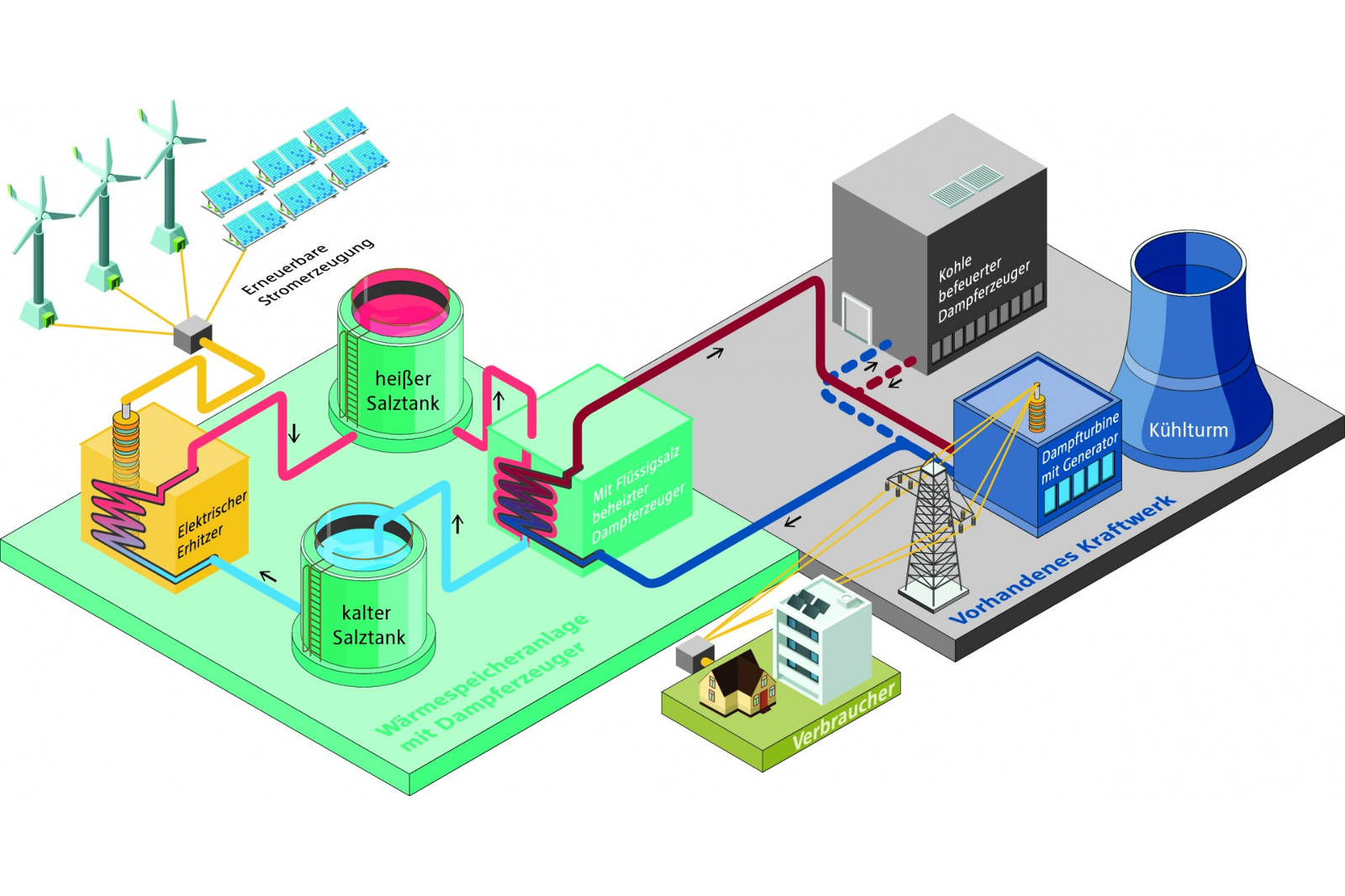RWE and ARC marine celebrate milestone success in promoting marine biodiversity with eco-engineered scour protection at Rampion Offshore Wind Farm
08.07.2025

Newsfacts:
Several thousand tonnes of hot molten salt will help store intermittent power from renewables at a large scale: In cooperation with the German Aerospace Center (Deutsches Zentrum für Luft- und Raumfahrt; DLR) and the Aachen University of Applied Sciences, RWE Power is developing a pilot project for molten-salt based energy storage. In this project, an existing coal-fired power plant in the Rhenish mining region will be converted into a thermal-storage power plant.
The state of North Rhine-Westphalia supports the project proposal and included it in the immediate action programme for the Rhenish mining region entitled “Das Rheinische Zukunftsrevier” (The Rhenish Coal-Mining Region of the Future). Within the scope of its development programme “progres.nrw”, the state is going to invest €2.9 million into development and design activities related to this unique plant which is the first of its kind. Also, the project partners intend to apply for funds from the German federal government in order to realise the project.
Prof. Dr. Andreas Pinkwart, Minister of Economics, Innovation, Digitalisation and Energy of the State of North Rhine-Westphalia: “The planned thermal-storage power plant is a prominent project for the future of the Rhenish lignite area. By using the existing infrastructure, we will be able to make an important and sustainable contribution to the storage of renewable energy and security of supply. Moreover, the project will be an important impetus for creating value and jobs in this region affected by structural change.”
“This project has enormous potential – not only with a view to the energy transition and security of supply, but also for structural change in the Rhenish lignite area”, Dr. Lars Kulik, Executive Board member of RWE Power AG, stressed. “If this technology proves its worth, thermal storage could help our power plant sites in this region play an important role in energy supply even after coal-fired power plants close down.”
And this is how a thermal storage power plant works: molten salt is heated with surplus power to up to 600 degrees Celsius in an electric heater and then stored in a tank. If electricity demand rises, the molten salt is passed through a heat exchanger. In this process, the salt cools down to 250 to 300 degrees Celsius and is stored intermediately in another tank. The resulting steam is fed into a power plant turbine which generates electricity. The steam replaces part of the steam otherwise generated from lignite. With the continued growth of renewable energy, it will be possible to gradually expand the capacity of the thermal store while further reducing the use of lignite. After the coal phase-out, the thermal storage power plant can then be operated entirely with renewable energy sources. By compensating for the intermittent nature of renewable energy, it will make an important contribution to security of supply.
Prof. Dr.-Ing. Karsten Lemmer, DLR Board member responsible for energy and transport, commented: “With a view to security of supply, we will have to make the energy system much more flexible at all levels in order to be able to balance electricity generation and demand despite a high proportion of intermittent generation from renewable sources. This also includes the coupling of the power, heat and transport sectors. In this context, energy storage is indispensable for demand-oriented energy supply and will make it possible to convert coal-fired power plants into storage power plants in the medium term.”
Prof. Dr.-Ing. Ulf Herrmann from the Jülich Solar Institute of the Aachen University of Applied Sciences said: “Over the past few years, the Jülich Solar Institute has advanced the concept of the thermal power plant in various research projects. Now we are highly motivated to participate in the realisation of this idea with enormous regional significance.”
The exact location of the new plant has not yet been decided. But it will be in the Rhenish lignite area where the local power plants are especially suitable since they already have grid connections and the necessary infrastructure, such as turbines, generators, transformers and cooling towers. This will save time and costs. Construction of the plant could begin in the early 2020s.